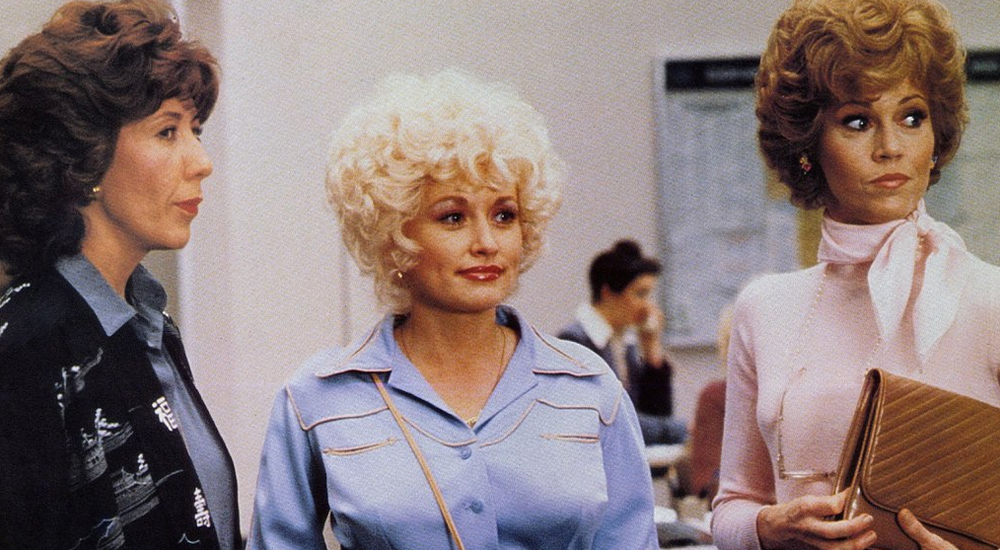Over her long career, Jane Fonda has always aimed to “throw light into dark corners” with her projects. So it was a stroke of genius to produce 9 to 5 in 1980, addressing the issues facing working women into a slapstick comedy starring three of the country’s biggest stars: herself, Lily Tomlin, and Dolly Parton. More than 40 years after its premiere, the cultural touchstone gets its own documentary, Still Working 9 to 5, to explore how the film was made and how its issues still remain relevant today.
This is very much a straightforward documentary, full of archival footage and talking head interviews with those involved with the film and activists on the front line. It does a good job of couching the film in its historical context, outlining the issues women faced in the workplace, from pay gaps to sexual harassment and assault. It’s clear that everyone involved had to trust Jane Fonda’s vision for this silly comedy with ridiculous gags as a way to get through to audiences. Sure enough, it became the cultural phenomenon we know today, due in no small part to arriving at the right time with a cast teeming with charisma.
The most interesting part of the documentary covers its journey through the cultural lexicon. Wildly popular when it premiered, it tried to continue its legacy with a TV show, which eventually departed so far from the original heart of the film that it became almost a parody. Things quieted down until the 2009 Broadway revival. Premiering during a time that saw Barack Obama become president and the Lilly Ledbetter Fair Pay Act passage, the issues felt like a relic from the past. An interview with Harvey Weinstein, a producer of the show, on the red carpet portends the darker future to come.
The interviewees do a good job of explaining how issues facing women in the workplace have changed and shifted and yet stayed the same from the days of 9 to 5. There’s a bit of a rush at the end of the film to end on a call to action, to get the ERA symbolically passed. It feels a bit tacked on, but the film is enjoyable enough covering the film and tying it to women’s workplace issues in the past and present that it’s easy to forgive the clunky ending. As Kelly Clarkson covers the iconic “9 to 5” song alongside Dolly Parton over the credits, you’ll feel it’s been an hour and a half well spent.

